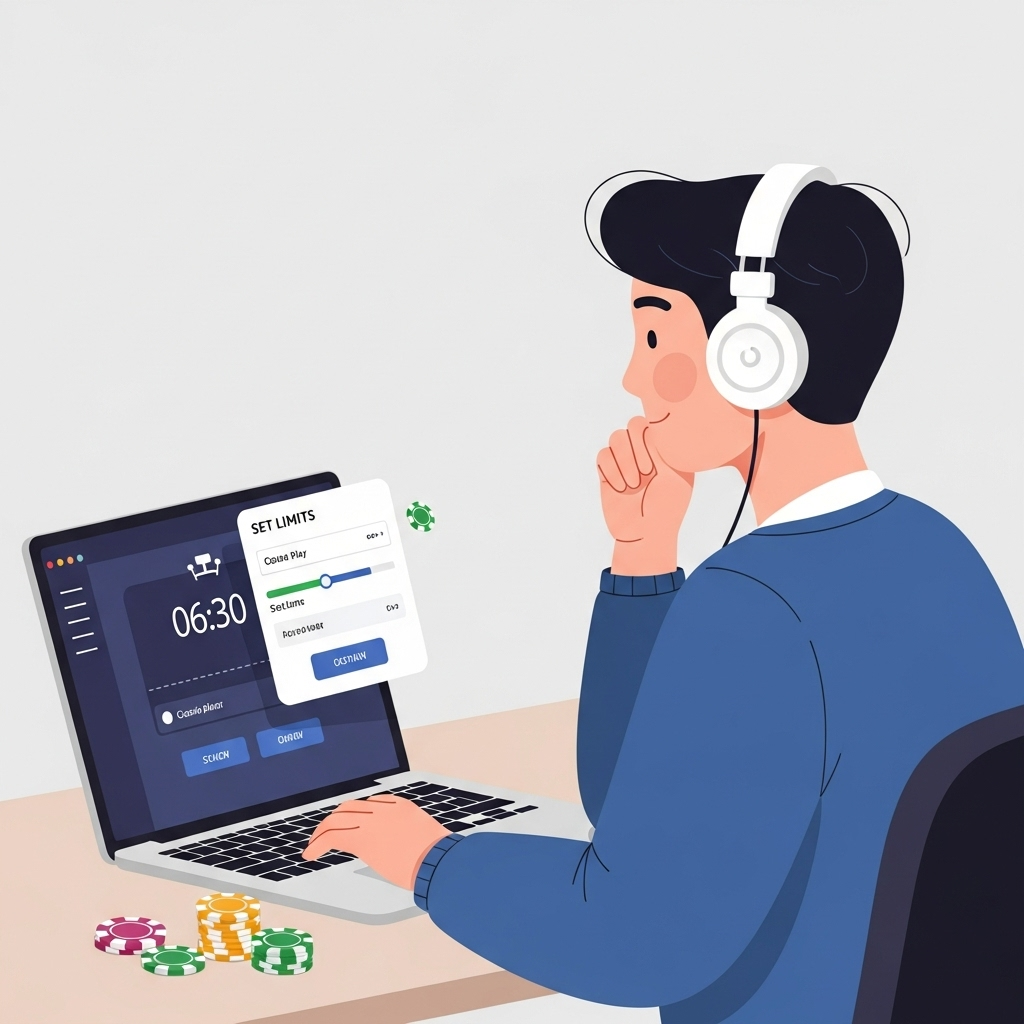Online casinos are a popular form of entertainment that can bring a lot of enjoyment. To ensure this pastime remains fun and safe, it’s important to understand and apply the principles of responsible gaming. This guide will help you learn what responsible gaming means, what tools are available to support it, how to recognize warning signs, and where to seek help if needed.
What Is Responsible Gaming?
Responsible gaming means approaching gambling as a recreational activity rather than a source of income or a solution to financial problems. It’s about playing for fun—not under pressure or in an attempt to win back losses.
Key principles of responsible gaming include:
- Set limits in advance for how much time and money you’ll spend gambling.
- Understand that gambling is entertainment and comes with both wins and losses.
- Be aware of potential risks associated with excessive gambling.
- Know when and how to stop before things get out of control.
Responsible Gaming Tools Available in Online Casinos
Reputable online casinos provide a variety of tools to help players stay in control. Use them proactively!
Limits
Your first line of defense against overspending.
- Deposit Limits: Set a maximum amount you can deposit daily, weekly, or monthly. Once the limit is reached, you won’t be able to top up your account until the time frame resets.
- Loss Limits: Restrict the total amount you can lose over a certain period, helping you avoid large financial losses.
- Wagering Limits: Set a cap on the amount you can bet in a single session or game.
- Session Time Limits: Some casinos allow you to set time limits for gaming sessions, after which you’ll receive a reminder or be logged out automatically.

Self-Exclusion
If you feel you’re losing control, self-exclusion is a lifeline. You can block access to your account for a specific period (weeks or months) or permanently. This gives you time to reassess your gambling habits.
Transaction and Session History
Track your spending and playtime. Most online casinos provide detailed reports in your account dashboard, helping you stay informed and accountable.
How to Recognize Signs of Problem Gambling
It’s crucial to spot the signs when gambling starts to negatively affect your life.
Behavioral Signs
- Loss of Control: You spend more time or money gambling than intended and struggle to stop.
- Gambling Priority: Gambling takes priority over work, school, family, or other obligations.
- Lying: You hide your gambling habits or losses from family and friends.
- Irritability: You feel anxious, frustrated, or depressed when you can’t gamble.
Financial Signs
- Debt: Accumulating debt or taking out loans to continue gambling.
- Selling Property: Selling valuables to fund gambling.
- Borrowing Money: Frequently borrowing from friends, family, or financial institutions to keep gambling.
Emotional Signs
- Depression & Anxiety: Feelings of guilt, despair, or helplessness after gambling.
- Loss of Interest: Lack of interest in hobbies or activities once enjoyed.
- Sleep Issues: Insomnia or disturbed sleep due to gambling-related stress.
Where to Get Help
If you or someone close to you is struggling with gambling, remember—you’re not alone, and support is available.
Support Organizations
There are international organizations that offer free, anonymous help, such as: Gamblers Anonymous, GamCare. These organizations provide hotlines, online resources, and peer support groups. There may also be local services available in your country.
Professional Help
Consulting a psychologist or therapist specializing in addiction can be very effective. Cognitive Behavioral Therapy (CBT) is commonly used to treat gambling addiction.
Family and Friends
Opening up to your loved ones can be the first step toward recovery. They can provide emotional support and help you seek professional assistance.
Tips for Maintaining Responsible Gambling Habits
To keep gambling enjoyable and under control, follow these tips:
- Decide on a set amount you’re willing to lose and never go beyond it. Consider it entertainment spending, like a movie or dinner out.
- Never use money meant for bills, rent, food, or essential needs.
- If you lose money, accept it. Chasing losses often leads to bigger problems.
- Take regular breaks to stay mentally sharp and avoid impulsive decisions.
- Don’t play when feeling stressed, angry, tired, or depressed—your emotional state can affect your judgment.
- Don’t let gambling become your only form of entertainment. Balance it with hobbies, social interaction, and physical activity.
- Gambling is entertainment—not a job or a way to solve financial problems. Wins are based on luck and never guaranteed.
Conclusion
In summary, responsible gaming is the key to a safe and enjoyable online casino experience. Make use of available tools like limits, stay aware of the risks, and know where to turn for help if needed. This way, you can keep your gambling under control and enjoy it as a healthy form of entertainment.